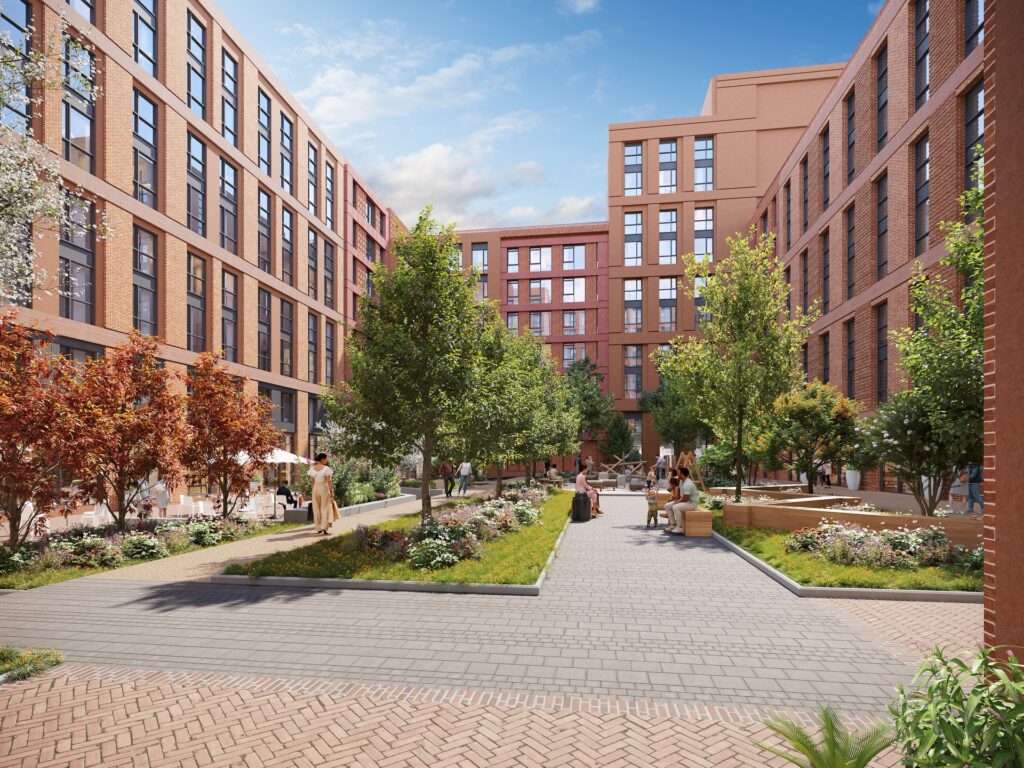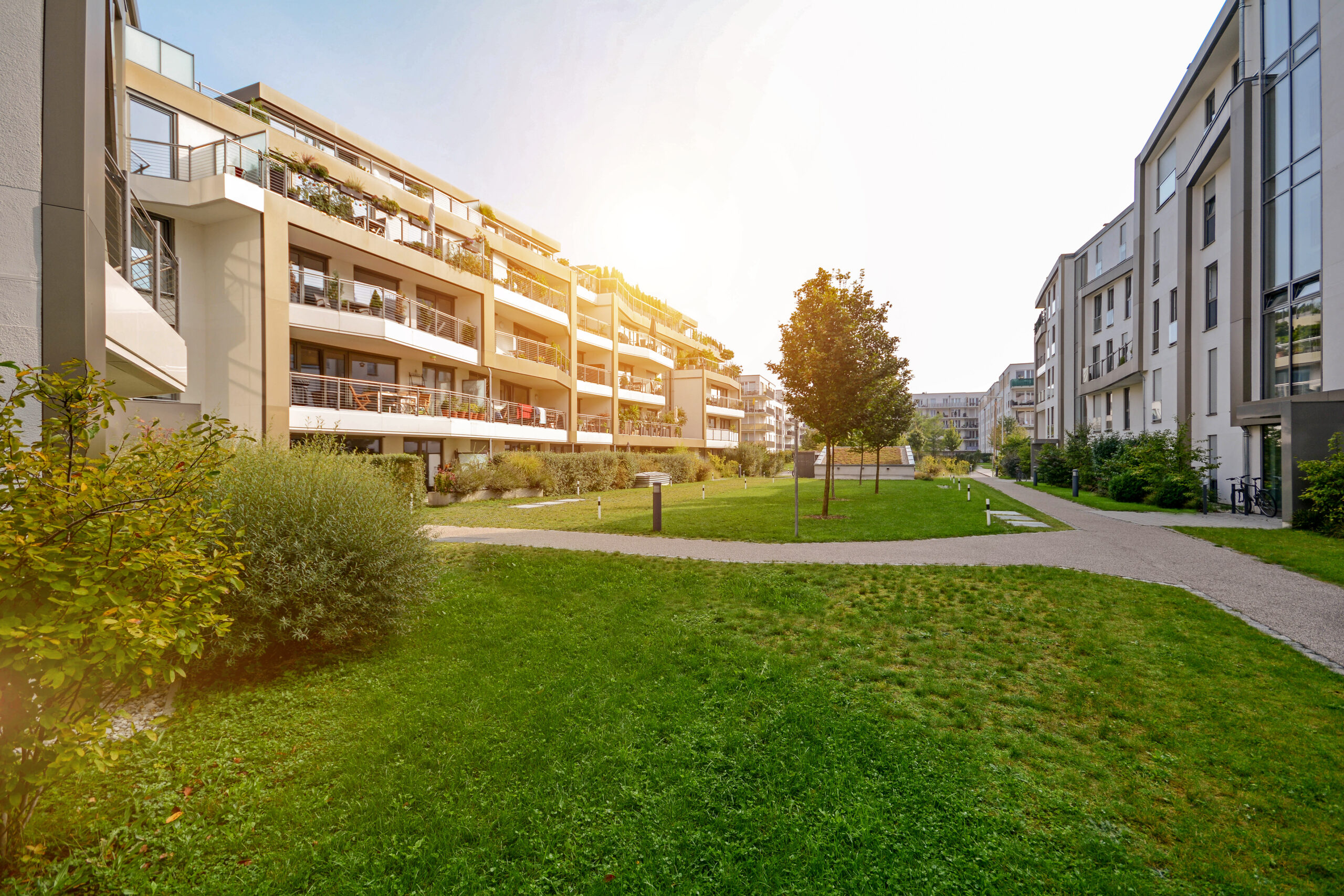Investing in social housing properties in the UK can be a rewarding venture, both from a financial and societal perspective. As a crucial component of the UK’s housing landscape, social housing plays a pivotal role in providing affordable and stable accommodation to individuals and families with lower incomes or specific vulnerabilities. This guide aims to provide a comprehensive overview of social housing property investment in the UK, exploring the opportunities it offers, the challenges it presents, and the impact it can have on investors and society as a whole. Whether you’re a seasoned property investor or considering entering the market for the first time, this guide will equip you with the knowledge you need to navigate the world of social housing investments in the UK.
What is Social Housing?
Social housing in the UK serves as housing provided by the government or non-profit organisations to individuals and families who cannot afford private market rentals or homeownership. The country currently faces a significant demand for social housing, with over 1.4 million individuals urgently needing such assistance, and approximately 8.5 million people experiencing unmet housing needs. Waiting lists for social housing are extensive, with roughly 1.1 million households officially documented and an estimated half a million more individuals in need.
Disturbingly, around two million children in England, equivalent to one in five, reside in homes that are either overcrowded, unaffordable, or unsuitable for their needs. Local authorities spent more than £1.4 billion on temporary accommodation in a recent year.
Social housing in the UK is characterised by affordability, eligibility criteria that prioritise those in greatest need, quality standards to ensure safety and quality of housing, long-term tenancy options for stability, and sometimes integration into mixed-income communities. The “Right to Buy” policy introduced in the 1980s allowed tenants to purchase their social housing units at a discount, reducing the overall supply of social housing. Additionally, housing associations, which are non-profit organisations, play a significant role in providing affordable housing alongside council-owned social housing.
Eligibility for social housing in the UK generally depends on factors such as residency status, income, local connection, vulnerability, age, and legal status. These criteria can vary among local authorities and housing associations.
Social housing in the UK is intended to provide a reliable, safe, and affordable housing option for low-income and vulnerable populations, with the aim of meeting the housing needs of those who require assistance.
365 Invest offers investment opportunities in social housing properties, which are designed to benefit both investors and individuals in need of secure housing. These properties cater to the housing requirements of vulnerable adults, prioritising their well-being and providing a safe living environment. Investing in social housing with 365 Invest allows investors to contribute positively to society while enjoying potential financial returns and hassle-free investment opportunities.
Who is Eligible for Social Housing in the UK?
Eligibility for social housing in the UK varies depending on the housing association, local authority, or housing authority responsible for allocation in a particular area. However, there are common eligibility factors that generally apply across the UK. Social housing is typically provided by local authorities (councils) and housing associations.
Common Eligibility Factors:
-
Income Limits:
Most social housing providers set income restrictions, with households needing income below specific thresholds to qualify. These limits vary by local authority or housing association.
-
Residency and Citizenship:
Applicants usually must be legal UK residents to qualify, and some authorities prioritise those with strong local connections.
-
Priority Categories:
Eligibility can be influenced by priority categories, discussed further below.
-
Housing Need:
Urgency of housing need can impact eligibility, with homelessness or temporary accommodation situations often given higher priority.
-
Background Checks:
Background checks, including rental history and criminal records, are conducted as part of the eligibility assessment.
-
Assets and Savings:
Some providers assess financial assets and savings, which can affect eligibility.
There is no universal income limit for social housing in the UK. Limits vary significantly based on the housing provider, household size, and local housing market conditions. Housing providers aim to allocate housing to those with the greatest need, and income is just one consideration.
Social housing is allocated using a priority system, considering factors like homelessness, medical and disability needs, overcrowding, severe housing disrepair, domestic violence, local connection, families with dependent children, armed forces personnel, and emergency situations. Meeting criteria for a priority category does not guarantee immediate housing but increases chances of quicker placement.

Who Lives in Social Housing?
Social housing is primarily intended for individuals and families who have low incomes and may not be able to afford market-rate rents or homeownership. This includes people in low-wage jobs, those on welfare or housing benefits, and those with limited financial resources. Families with children make up a significant portion of social housing residents. Stable and affordable housing is crucial for children’s well-being and education.
Many elderly individuals or retirees live in social housing. Specialised social housing schemes are often designed to cater to the specific needs of older residents, including features like accessibility and support services. Social housing can also be adapted to accommodate individuals with disabilities, including physical disabilities, sensory impairments, or mental health conditions. It may include features like ramps, wider doorways, and other accessibility enhancements.
Social housing may also be provided to individuals and families who are homeless or at risk of homelessness, as well as individuals and families fleeing domestic violence situations. In some cases, social housing may be allocated to refugees and asylum seekers who have been granted asylum or have been placed under the care of local authorities.
Some social housing schemes may allocate units to key workers such as nurses, teachers, and emergency service personnel to ensure they can afford to live in or near the areas where they work. Young adults who have been in the care system and are transitioning to independent living may be eligible for social housing support.
It’s important to note that eligibility for social housing can vary by region and local authority, and there are often waiting lists due to the high demand for affordable housing. Allocation policies also take into account factors like household size, housing needs, and local priorities.
Is There a Shortage of Social Housing in the UK?
The demand for social housing has historically exceeded the available supply, leading to waiting lists and housing difficulties for many people in the UK. In England, there is a waiting list of more than 1.2 million households seeking social housing. Additionally, close to 100,000 households, including 120,710 children, are currently residing in temporary accommodation. In the financial year 2021-22, local councils expended a substantial £1.6 billion solely on providing temporary housing solutions.
Several factors have contributed to this shortage:
High Demand:
There is a high demand for affordable housing in the UK due to factors like population growth, increased life expectancy, and economic challenges, such as stagnant wages and rising housing costs.
Limited Supply:
The construction of new social housing units has not kept pace with the demand. Last year, less than 7,000 new social homes were built, whilst 29,000 were sold or demolished. This is partly due to government policies, which have shifted towards promoting homeownership and reducing public spending on housing.
Right to Buy Scheme:
The Right to Buy scheme, which allowed social housing tenants to purchase their homes at a discount, has reduced the stock of available social housing over the years.
Aging Housing Stock:
Much of the existing social housing stock is old and in need of repair and maintenance, making it less appealing for both tenants and landlords.
Financial Constraints:
Government funding for social housing has been limited, making it difficult for housing associations and local authorities to invest in new housing projects or maintain existing properties.
Housing Benefit and Welfare Changes:
Changes to the welfare system and housing benefits have made it more difficult for low-income individuals and families to afford market-rate rental housing, increasing their reliance on social housing.
The UK government and various advocacy groups have been working to address the social housing shortage through initiatives, funding, and policy changes. However, the state of social housing in England has reached a “crisis point” with the disappearance of over 200,000 of the country’s most affordable social homes over the past decade.

Can You Invest in Social Housing?
Yes, anyone can invest in social housing. 365 Invest specialises in offering investment properties in social housing and assisted living sectors, presenting a mutually beneficial solution that serves both investors and vulnerable individuals seeking secure housing. These properties are thoughtfully designed to meet the specific housing needs of vulnerable adults, prioritising their well-being and providing a secure and comfortable living environment.
In addition to its positive societal impact, investing in social housing and assisted living with 365 Invest offers numerous advantages. We collaborate with reputable developers who specialise in hassle-free social housing and assisted living property investments, delivering substantial yields. Our primary goal is to empower investors by providing low-effort investment opportunities that eliminate the typical challenges associated with property management. Recognising the time-consuming and complex nature of rental property management, we offer a unique solution that enables investors to reap the rewards of property ownership without the associated stress. Our expert partners oversee the renovation and operation of property developments, securing long-term commercial tenants to ensure a dependable and stable source of rental income.
Is Social Housing a Good Investment in the UK?
Investing in social housing in the UK is a decision that comes with its own set of pros and cons. It can be a good investment for individuals or organisations with specific financial goals, risk tolerance, and a commitment to social or ethical priorities. One significant advantage is the reliable and steady rental income that social housing units often provide. These properties are typically occupied by tenants who receive housing benefits from the government or local authorities, ensuring a consistent source of revenue. Additionally, social housing investments can offer long-term stability, given the ongoing demand for affordable housing in the UK.
Investors interested in social housing often appreciate the ethical or social impact of their investments. By providing affordable housing options for those in need, they contribute positively to the community. Moreover, the UK government supports social housing initiatives through various incentives and programs, such as grants, tax benefits, and financing options. This governmental backing can enhance the appeal of social housing as an investment choice and provide financial advantages.
However, it’s important to consider potential disadvantages and risks associated with social housing investments in the UK. For example, economic and market conditions can influence the performance of social housing investments. Rent controls, tenant protections, and other regulations may impact the financial aspects of social housing investments.
Is Social Housing Profitable?
The profitability of social housing in the UK can fluctuate depending on various factors. Social housing investments can provide a reliable and consistent rental income. Tenants in social housing typically receive housing benefits from government or local authorities, ensuring landlords a steady stream of revenue. Moreover, the long-term stability of social housing is notable, as the demand for affordable housing in the UK remains constant, making it a resilient investment choice.
Another advantage is the support offered by the UK government mentioned above. These various incentives and programs are available to encourage and facilitate social housing initiatives, which can enhance the profitability of social housing investments.
At 365 Invest, we meticulously select our properties from completed developments, eliminating the risks and uncertainties associated with ongoing construction projects.
With our full repairs and insurance (FRI) lease, investors are relieved from the burden of property maintenance and repairs. The tenant, in this case, the housing association, handles all repair and insurance matters, streamlining the investment process. Our investment properties are entirely free from ground rent or service charges, allowing investors to maximize their rental income without incurring additional costs.
We take care of all aspects of managing the property, including tenant placement, rent collection, and property maintenance, ensuring a hassle-free experience for our investors. Additionally, we guarantee that our properties adhere to the highest standards of quality, as required by the regulations governing housing association lease agreements.
Furthermore, our properties come with tenant damage and maintenance cover, safeguarding investors from unexpected expenses related to property damage. We secure long-term leases with commercial tenants, such as housing associations, ensuring a stable and consistent rental income for our investors. These leases typically span between 10-25 years.

How Does Social Housing Make Money?
At 365 Invest, our properties offer attractive yields of 8-10% NET, sourced through housing associations. They are also indexed to the Consumer Prices Index (CPI), providing investors with a secure and stable hedge against inflation.
Due to this and the other benefits mentioned above, investing in social housing is very profitable. Here is an example of the profit you can expect to make on an initial £120,000 investment with a 9% yield:
| Annual rental income | |
| Year 1 | £10,800.00 |
| Year 10 | £14,693.71 |
| Year 25 | £24,545.84 |
This is equivalent to a 227.28% growth in profit in a 25 year investment. The lease can be for up to 25 years as social housing is designed to give people a safe home in the long-term. Giving tenants a shorter lease and selling the property when the lease ends could possibly make the tenants vulnerable and even homeless again. This is why investing in social housing can also be seen to be an ethical investment.
Conclusion
In conclusion, social housing property investment in the UK is a multifaceted endeavour that combines financial returns with the opportunity to make a positive impact on society. It provides a valuable solution for investors looking to diversify their portfolios while contributing to the critical need for affordable and stable housing options in the UK. As this guide has illustrated, investing in social housing comes with its set of advantages and challenges. It offers the potential for attractive yields, stable income streams, and a sense of social responsibility. However, it also requires a deep understanding of the regulatory landscape, local housing dynamics, and the unique needs of vulnerable populations.
Navigating the social housing property investment landscape in the UK demands careful research, due diligence, and a long-term perspective. That’s why, if you partner with 365 Invest, you can stay informed about the latest developments, engage with reputable partners, and align your investment goals with the broader societal need for affordable housing. You can not only reap financial benefits but also contribute to a more inclusive and equitable housing system. Whether you’re motivated by financial gain, social impact, or a combination of both, social housing property investment in the UK offers a unique opportunity to achieve your objectives while addressing a critical societal challenge.










